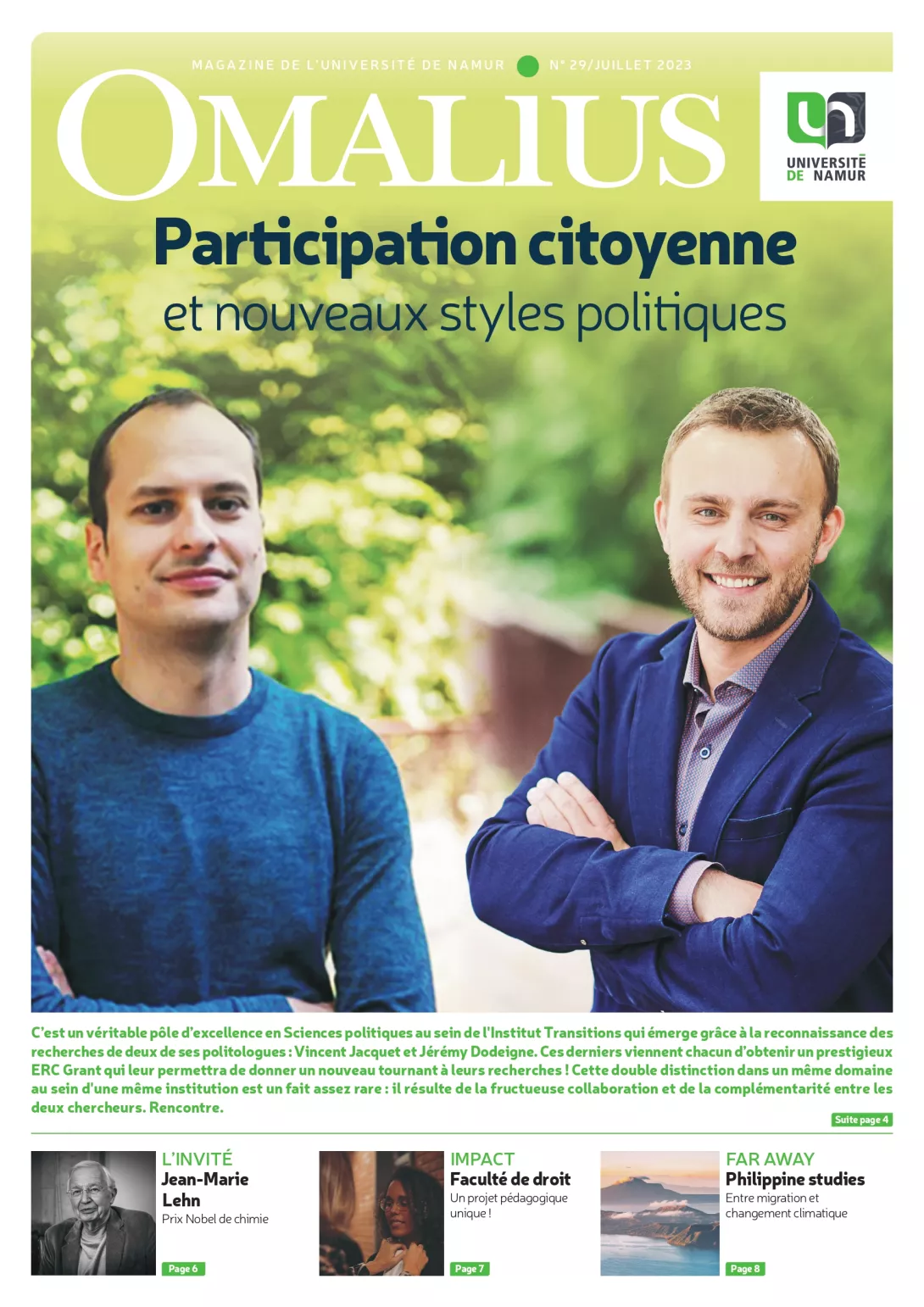
This article is taken from the June 2023 issue of Omalius magazine.
Omalius: What is your greatest achievement?
Jean-Marie Lehn: At this stage, I would say the conceptualisation of the field of supramolecular chemistry (see insert below). This field has always existed. But at some point, we had to conceptualise and discover some of the mechanisms of supramolecular effects.
O. What do you mean by "supramolecular effects"?
J.-M.L.: It's the way in which molecules assemble and behave when they are mixed together in a condensed phase. A glass of water, for example, can boil or freeze, whereas an isolated molecule can do neither. It is the combination of water molecules and the interactions between them that give rise to properties that can be called "emergent". As the level of complexity increases, new properties emerge.
The highest property in absolute terms is thought. Admittedly, there is a lot to learn about how thought works. But the more complex it becomes, the more complex properties emerge. They are not reduced to their component parts, in particular thought to the molecules that make up the brain but are deduced from them by gradually increasing the level of complexity.
O. What role will chemistry play in tomorrow's world, given the energy crises?
J.-M.L.: It seems to me that we need to take energy from where it is available. Energy determines everything else. We need to mobilise all sources. First, we need to use water, wind, sun and the earth (hydroelectricity, wind turbines, photovoltaics, geothermal energy). And then, of course, there's nuclear energy, which makes a crucial contribution. Like many other people, I'm in favour of the implementation and development of nuclear energy, properly managed and used.
Chemistry, for its part, contributes enormously to the materials used in so-called renewable energies and of course in the manufacture of the batteries on which their use depends.
I recently asked a taxi driver how much the battery in his electric car weighed. It weighed 600 kg, meaning that while he was carrying one person, he was carrying 10. That's unsustainable! We're going to have to find much more efficient batteries. We also spent 10 years working on the photodecomposition of water at the time of the first oil crisis in 1974. Some interesting basic results have been obtained and progress has been made, but we need to arrive at a situation that is economically viable.
O. What did the Nobel Prize mean to you personally?
J.-M.L.: The award of the Nobel Prize is based on multiple nominations and suggests that you have made an important contribution in a certain field of science. It's obviously satisfying. On the other hand, it must be said that many scientists who could have won it did not. I'm thinking of Mendeleïev and his system for classifying the elements in the middle of the 19th century.
O. A message for the next generation?
J.-M.L.: I often say that science defines the future of humanity. It is crucial to strengthen science education and the scientific spirit. With all the fake news out there, it's tempting to believe anything. But we must admit that we cannot always know everything, even if that is an uncomfortable idea. Science itself is very uncomfortable, because there is no such thing as absolute certainty.
I believe that science will continue to guide humanity towards the future, but beyond the discoveries and practical applications, it is above all the scientific spirit and approach that are important.
Nature has created many things in the course of evolution, but there are still many other possibilities to explore. We are not perfect as evolution has made us today. Thanks to science, we will be able to take over and continue to help humanity evolve. This is what we call transhumanism, but we need to define what we mean by this term...
Supramolecular chemistry
Supramolecular chemistry is one of the branches of chemistry based on weak interactions (known as non-covalent interactions) between atoms within a molecule or between molecules within a molecular group. Its aim is to understand or build nanometric-sized structures. The principle is to use molecular building blocks which, once mixed in solution under controlled conditions, self-assemble to form more complex structures. The study of non-covalent interactions and the relationship between function and structure form the basis of our understanding of biological systems. The biological world is often a source of inspiration in the modelling of supramolecular assemblies.
Some applications
- Materials science
- Catalysis
- Medical science
- Green chemistry
Jean-Marie Lehn - Express CV
- Born on 30 September 1939 in Rosheim (France)
- French chemist specialising in supramolecular chemistry and the originator of seminal work on self-organisation.
- Co-winners with Donald J. Cram and Charles J. Pedersen of the 1987 Nobel Prize in Chemistry "for their development and use of molecules which, because of their structures, exert highly selective interactions".

This article is taken from the June 2023 issue of Omalius magazine #29.
Read Omalius #29 online (in French)
Would you like to receive Omalius in paper format? It's simple!
